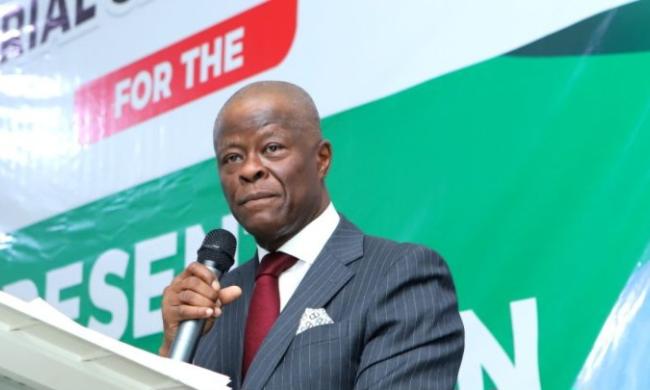
The Nigerian government is preparing to roll out a cash transfer program aimed at assisting 20 million of the nation’s most impoverished citizens.
This initiative is part of a wider strategy to channel increased revenue generated during the 2024 fiscal year into social intervention programs, with the goal of improving living standards and addressing pressing societal needs.
Wale Edun, the Minister of Finance and Coordinating Minister of the Economy under President Bola Tinubu, announced that approximately 60 percent of the funds from this program would specifically target the most vulnerable populations.
During a panel discussion titled “Fiscal Reforms for a More Secure Future” at the 30th Nigeria Economic Summit in Abuja, Edun highlighted that the government’s focus on mobilizing domestic resources has led to significant revenue growth. He reported that revenue for the first half of 2024 surpassed N9.1 trillion, more than double the N4.06 trillion collected during the same timeframe last year.
“The increased revenue is primarily being utilized to finance social programs aimed at alleviating the effects of essential yet challenging reforms that have impacted the cost of living,” Edun remarked.
He also presented a comprehensive economic reform agenda aimed at combating inflation, creating job opportunities, and promoting growth in vital sectors of the economy.
According to Edun, “Aggregate government revenue has more than doubled, achieved through the robust application of technology.”
“We have leveraged technology to reform the civil service. Instead of waiting for compliance from government ministries, departments, agencies, and companies, we examined existing rules and regulations, assessing how much a company could allocate to its revenue and how much surplus it should contribute to the government.”
He explained that “the social investment program is focused on direct cash transfers to reach 60 percent of the poorest individuals in the population. Currently, 4 million households are benefiting directly, with plans to expand to 15 million households.”
“This is how President Tinubu’s administration is allocating funds derived from improved oil production,” he added.
Edun noted that the government is prioritizing agriculture, manufacturing, oil, and housing as key drivers of Nigeria’s economic growth. “We are focusing on food production to help mitigate inflation,” he said. “Our aim is to increase food availability and affordability, thereby reducing the cost of living for Nigerians.”
He further mentioned that direct cash transfers have already reached 4 million households.
Regarding the oil sector, Edun underscored its importance in generating foreign exchange and highlighted the government’s strategic initiatives within the industry. He pointed out that recent reforms have attracted significant investments, including an additional $10 million from ExxonMobil and other major players.
“The oil sector remains our main source of foreign exchange and revenue globally,” he affirmed, expressing optimism about ongoing contributions from both local and foreign investors.
These initiatives have encouraged Nigerian manufacturers to commit approximately $4.2 billion in investments, improving the country’s economic prospects.
Additionally, the minister highlighted other programs such as student loans and consumer credit schemes aimed at helping workers purchase household goods or convert their vehicles to cleaner Compressed Natural Gas fuel.
In the agricultural sector, the government is allocating up to N75 billion in grants and loans to support one million small and micro enterprises. Larger companies will also receive an additional N75 billion distributed in N1 billion tranches at a nine percent annual interest rate to help manage production and operational costs, particularly in light of recent foreign exchange fluctuations affecting their profit margins.
“This is how President Tinubu and his administration are utilizing the increased revenue generated from enhanced oil production and macroeconomic reforms, expected to save the country five percent of GDP,” Edun concluded. “A wide array of social investment initiatives is directing these funds.”
For more updates, join our WhatsApp channel here.